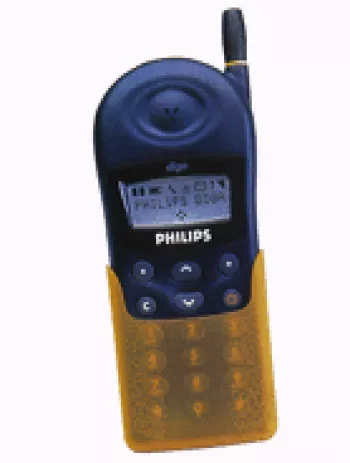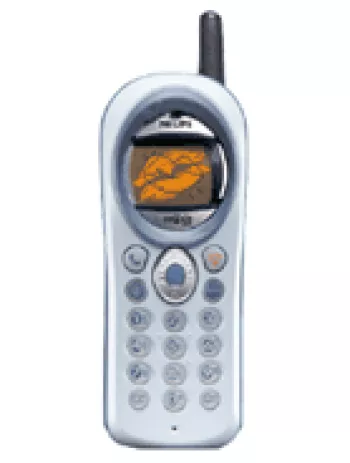
Overview
The Philips X125 is a feature phone that was introduced in January 2012 and subsequently discontinued. Known for its simplistic design and utility-focused features, the Philips X125 catered to a user base looking for a reliable and straightforward mobile phone solution. This article delves into the various aspects of the Philips X125, highlighting its design, functionality, and technical specifications.
Design and Build
With dimensions of 107.5 x 43 x 15.5 mm and a weight of just 68 grams, the Philips X125 adopts a compact and lightweight design, making it easy to hold and carry. The phone features a classic candy bar design, which was a popular choice among feature phones during its time. The black-colored body and the use of durable materials ensure that the phone remains resilient against everyday wear and tear.
Display
The Philips X125 is equipped with a 1.44-inch TFT display, capable of showing 65K colors. With a resolution of 128 x 128 pixels, the display offers a pixel density of approximately 126 ppi. Although its screen-to-body ratio is about 14.5%, the display size and resolution are typical for phones of its class and time, suitable for basic tasks such as viewing messages and navigating the interface.
Network and Connectivity
In terms of network capabilities, the Philips X125 operates on GSM technology, supporting GSM 900 and 1800 bands. It does not support GPRS or EDGE, limiting its data connectivity options. The phone is designed primarily for voice calls and SMS messaging rather than internet-based applications.
As for connectivity features, the Philips X125 does not include Bluetooth or WLAN. It is equipped with a miniUSB port for charging and data transfer, although usage scenarios are typically limited. The presence of an FM radio provides a simple entertainment option for users.
Memory and Storage
The Philips X125 comes with a dedicated microSD card slot, which allows for expandable storage. This feature is essential for users wishing to store contact information and call records. The phone includes basic phonebook and call record functionalities, tailored towards users who prioritize these features over multimedia usage.
Sound and Entertainment
Despite its limited multimedia capabilities, the Philips X125 includes a loudspeaker for calls and alerts. However, it lacks a 3.5mm audio jack, which restricts the use of traditional headphones. The device includes a set of built-in games, providing a basic form of entertainment beyond voice calls and messaging.
Messaging and Other Features
Messaging on the Philips X125 is limited to SMS. There are no advanced features like MMS or email capabilities, reflecting the device's focus on essential feature sets. The phone does not support Java, limiting the ability to download or install additional applications that require this technology.
Battery and Performance
At the core of the Philips X125's utility is its removable Li-Ion 1050 mAh battery. Known for its long-lasting performance, the battery offers up to 720 hours of standby time and up to 8 hours of talk time. This endurance makes the Philips X125 a practical choice for users needing reliable power throughout the day without frequent recharging.
Conclusion
In summary, the Philips X125 serves as a testament to the practicality and reliability of feature phones from its era. While it lacks the functionality of modern smartphones, it excels in delivering basic mobile communication solutions with ease and efficiency. Its compact design, durable build, and long battery life make it ideally suited for users seeking a no-nonsense mobile experience focused on calls and text messaging.
Key Features of Philips X125
- Compact and Lightweight Design: Weighing only 68 g and with dimensions of 107.5 x 43 x 15.5 mm.
- Dedicated microSD slot for expandable memory.
- FM Radio for music and news on-the-go.
- Long-lasting battery life: Up to 720 hours standby and up to 8 hours talk time with a removable Li-Ion 1050 mAh battery.
- Mini USB port for connectivity.
- Support for SMS messaging and pre-installed games.
- TFT display with 65K colors.
Philips X125 Disadvantages
- No support for GPRS or EDGE, limiting internet connectivity options.
- Lacks modern connectivity features like Bluetooth and WLAN.
- No GPS positioning support.
- Limited display size and resolution with only 1.44 inches and 128 x 128 pixels.
- Basic TFT display with only 65K colors, which might not provide vibrant visuals.
- No camera available for taking photos or videos.
- No 3.5mm audio jack, which limits options for audio accessories.
- Only supports SMS for messaging with no support for more advanced messaging features.
- No support for Java-based applications.
- Discontinued status, which may make it difficult to find or support in the future.

View Also
More Phones
All Rights Reserved +14266 Phones © Mobilawy 2025

























